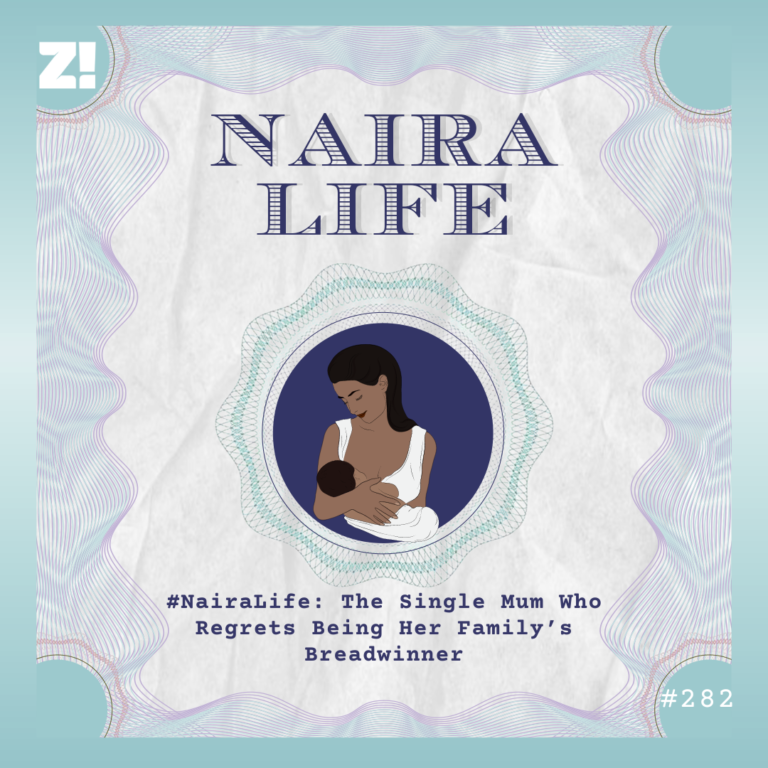Talk True is a Zikoko limited series for medical myth-busting. With each episode, we’ll talk to medical professionals about commonly misunderstood health issues to get the actual facts.
If you grew up in a Nigerian home, you know it’s a given that Saturdays are reserved for beans or beans-derived meals. And if you didn’t like beans, you were likely encouraged to eat it or prepare to be short. Beans have been so associated with height that almost every tall person can relate to being presented with the “Do you like beans?” question at least once in their lifetime.

But how did our parents and grannies start championing the “beans for height” theory in the first place? Is it a claim based on facts, or yet another ploy to force us to eat the food at home? Ayooluwa Okunjolu, a nutritionist, provides answers.
Why’s the “beans for height” theory even a thing?
“Beans are a great source of plant-based protein, and protein is an essential nutrient for growth and development — which we assumed means “height” — but few people actually know that beans isn’t all protein. It’s a great protein source, but that’s not all it is,” Ayooluwa says.
While beans contain 21-25% protein by weight — much higher than other plant-based protein sources — it contains about 65-72% complex carbohydrates by weight as well. Meaning it’s technically more carbs than protein. So, using beans alone as the primary source of protein in your diet won’t exactly provide all the growth and development your body needs.

Nigerian mothers right now
So, does eating beans actually make you tall?
“If it were true, I’d definitely be six feet tall, because my mum made sure I ate a lot of beans growing up,” Ayooluwa notes.

It just doesn’t work that way
He explains further.
“Growth and development are more of a cellular thing: organ development, tissue building and repair, cognitive development, etc.
Protein-rich food like beans supports growth and development, but it’s just one piece of the puzzle when it comes to increase in height. Genetic factors account for approximately 60-80% of a person’s height, while environmental factors — like diet, exercise and lifestyle — contribute only 20-40%.
Your diet can impact whether you reach your maximum height potential, but it can’t alter the genetic potential for height. So, I’m sorry, but if your parents aren’t tall, it’s unlikely you’ll be tall regardless of the amount of beans you eat.”

Eating beans doesn’t equal to height, dear
Should you stop eating beans, then?
Definitely not. Beans contribute to healthy iron and Vitamin B intake, which prevents anaemia that could result in delayed growth in children. Some sources also say it’s great for brain power. As Ayooluwa explains, improper nutrition will also lead to an individual not reaching their full height potential.
“Beans are a very important part of our diet. It’s really nutritious, and when taken together with other healthy foods in a balanced diet, the body grows as it should.”
What kind of food can make you tall?
A balanced approach to nutrients is key. If your genetic blueprint doesn’t have “six feet” levels of height, there’s almost nothing food can do. But nutrition can help, and Ayooluwa explains that it’s an all-hands-on-deck approach.
“There’s no special food that’ll make you taller, but balancing all the nutrients is essential for growth and development. Nutrients like carbs, healthy fats, protein, vitamins and minerals are all equally important.”
Is there still hope for short people?
Not exactly. There’s hardly any physical change (read as height) that can happen once you’ve crossed puberty. This is because your bones stop growing and essentially fuse together.
“We stop growing around age 20, so eating healthy shouldn’t be for the purpose of getting taller at that age. Growth starts from infancy. Once there’s malnourishment and stunted development from an early age, it’s difficult to change in adulthood. So, doing the right thing from the beginning is essential. It doesn’t mean adults shouldn’t eat healthily, though. Remember, there’s still cellular growth and development going on — tissue repair and muscle building, for instance.”
The takeaway
Beans are a great source of protein, but it’s not the only factor involved in height. Ensuring a well-balanced diet from childhood will help you reach your full growth potential. But height is largely genetics. So, if it didn’t dey, it didn’t dey.

NEXT READ: Talk True: Does Cranberry Juice Cure UTIs?




